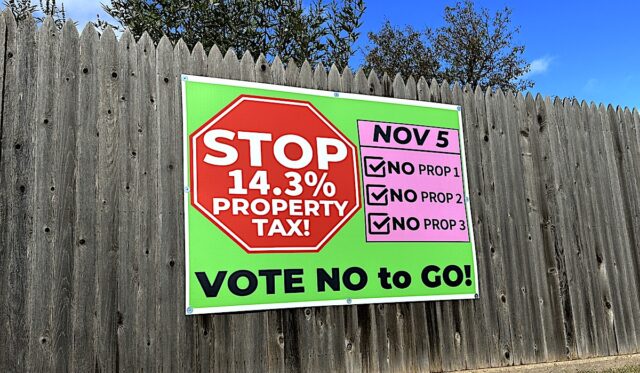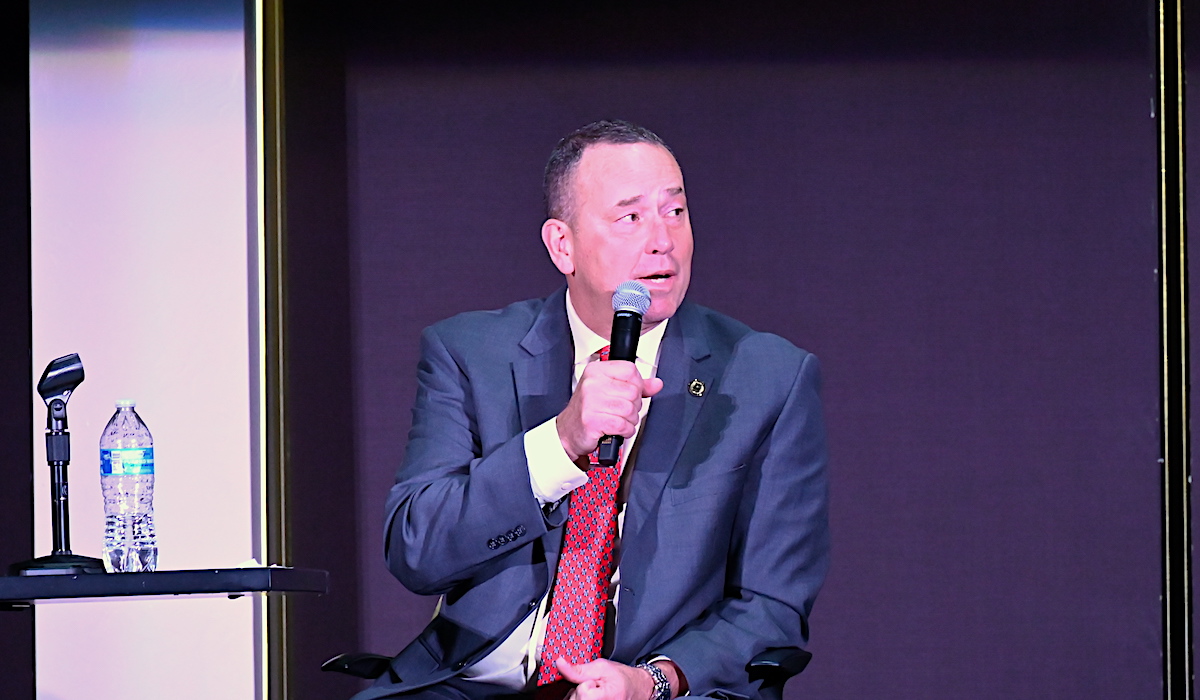
Edmond voters have shot down the 15-mill property tax increase that would have funded the first general obligation bond proposal the city has put forward in decades, leaving Edmond as one of the largest municipalities in Oklahoma not to have an active GO bond.
Since the 22-project bond proposal’s introduction, skepticism was high from voters who questioned why the city should take on bond debt to fund road and park projects typically tackled by capital improvement funds. Proponents, though, said the bond offered an effective way to fast-track priority projects like road upgrades and quality-of-life improvements.
Ultimately, what would have been a 14.3 percent property tax increase — equating to about a $480 annual increase for owners of an average Edmond home — drove opposition against the measure. All three segments of the package — parks, public safety and street maintenance components — failed with more than 60 percent opposition. With 56 percent of precincts reporting, the proposal with the most votes in favor was funding for a new fire station, which had accrued about 37 percent support.
The road maintenance projects and construction of a new fire station will be pushed down the calendar, with funding for such projects to be determined and proposed again later by city leaders. The bond proposal failing also means the future of Edmond’s planned veterans memorial at Bickham-Rudkin park is murky at best. The project had been struggling to secure private funding, and fundraising leaders said the GO bond was likely the only feasible way for the memorial to move forward as designed. A meeting of the memorial advisory committee is scheduled for 6 p.m. Wednesday with discussion of the Edmond GO bond election results listed as an agenda item.
The city is likely to resume exploring new development impact fees, a revenue stream Edmond does not use but that leaders had been considering prior to the GO bond package’s introduction. An OU economist previously told NonDoc impact fees — payments by developers to help cover the cost of public infrastructure and services required to accommodate new construction — are often introduced in conjunction with bond proposals. However, impact fees cannot be put toward maintenance of existing structures, and they can only be used to offset impact costs from new development.
Long-term, the many road widening and maintenance projects the bond would have covered can still be funded through other tax revenue, but will be pushed down the calendar, likely to be funded by increased sales taxes. A pair of city sales taxes are set to sunset March 31, 2027, so a vote to renew those taxes would need to be held to retain the revenue.
Todd McKinnis, chairman of the 25-member task force that crafted the bond propositions, said he remains optimistic an agreement on how to fund the projects can be found.
“We have a common ground on the idea that the projects need to happen, and that seems to be the majority of people. I’m sure it’s not all the people, but it seems to be a majority of people,” McKinnis said. “I look forward to starting immediately and figuring out how we do that. The projects are not going away, and they’re not getting less expensive to do.”
Throughout the bond process, McKinnis said he had heard the idea of introducing a lower property tax in conjunction with new sales taxes as a potential solution.
“Dollars are fungible, right? So any combination that seems to have a lot of support I think would be worth considering if there are people that are willing to, you know, come say, ‘Hey, we’re willing to support that,'” McKinnis said. “I mean, I believe we had a good program that was fair and equitable, but clearly that’s not what the citizens want. (…) I don’t have any pride in it having to be a certain way, even if I think one way is better. At the end of the day, I want Edmond to continue to invest in itself, because I think that’s what keeps us moving forward.”
Hines hands Brewer loss, keeps SD 47 red

In a suburban Edmond and Oklahoma City-area race that Gov. Kevin Stitt acknowledged during primary elections could flip blue, retired U.S. Army Col. Kelly Hines defeated business owner Erin Brewer to keep Senate District 47 in Republican hands.
With all precincts reporting at 9:15 p.m., Hines secured about 53 percent of the 39,222 votes cast.
Hines, who emerged from a three-candidate Republican primary in June and defeated Jenny Schmitt in the August primary runoff, called SD 47 a “cross-section” of various aspects of the Republican Party. He campaigned in large part on being able to unite different factions and interests within the GOP, which he said currently faces a “schism.”
Now, he will step into the office of term-limited Senate President Pro Tempore Greg Treat after overcoming Brewer, a well-financed education advocate whose campaign attempted to tie Hines to State Superintendent for Public Instruction Ryan Walters.
At an SD 47 debate, Hines said he would support putting abortion access to a statewide vote if residents desired a state question, and he said he would support expanded abortion access only for instances of rape, incest or when the life of the mother is in jeopardy. Brewer repeatedly criticized Hines for once calling Walters “admirable,” but Hines said his praise was primarily due to the controversial state superintendent’s political “honesty.” Hines added that he did not agree with all of Walters’ policies, particularly his controversial effort to place Bibles in classrooms.
In another Edmond race, incumbent Republican Rep. Erick Harris (R-Edmond) routed Independent Richard Prawdznienski of Edmond with 75.87 percent to 24.13 for Prawdzienski.
(Update: This article was updated at 9:40 p.m. Tuesday, Nov. 5, to include information about the Senate District 47 contest. It was updated again at 10:07 p.m. with additional information.)





















